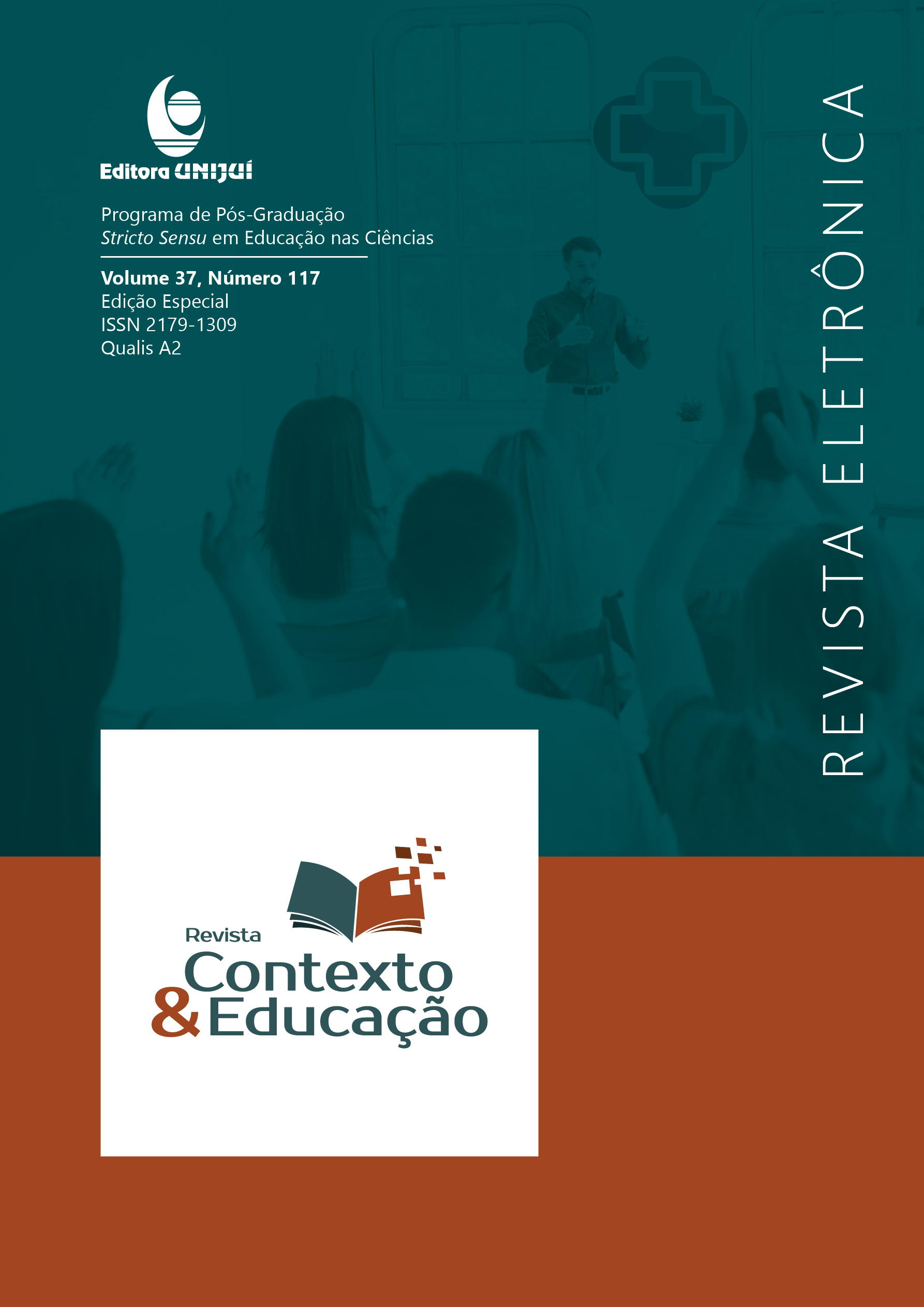A SEXUALIDADE EM TEMPOS DE COVID-19: O USO DE MÍDIAS SOCIAIS POR HOMOSSEXUAIS NA PANDEMIA
DOI:
https://doi.org/10.21527/2179-1309.2022.117.12879Palavras-chave:
Sexualidade, Homossexualidade, Mídias Sociais, Covid-19Resumo
Diante da pandemia do COVID-19, muitos problemas na saúde mental e nos relacionamentos afetivos e sexuais surgiram em decorrência das ações para a prevenção e o controle da doença. A chamada “quarentena” impôs às pessoas uma vida de isolamento social com restrições de contatos com amigos, parentes e vínculos amorosos estáveis ou não. O público homossexual ainda costuma esconder a expressão de seus desejos e vínculos eróticos em uma sociedade preconceituosa, utilizando-se de mídias sociais como alternativas para a busca de parceiros e encontros. Este estudo teve por objetivo investigar a opinião de 72 pessoas homossexuais ou bissexuais sobre o uso de mídias digitais para relacionamentos afetivos e sexuais antes e durante o período de isolamento, devido a prevenção ao contágio do COVID-19, que responderam a um questionário on line, para análise quantitativa. Os resultados mostram que a maioria dos/as entrevistados/as afirmou que os relacionamentos antes da pandemia mantiveram-se e houve um aumento da utilização das mídias sociais com seus parceiros/as com fins sexuais. Antes da pandemia o motivo principal do uso de aplicativos de relacionamentos era o de “marcar encontros”, mudando em tal período para a função de “ter com quem falar” ou deixaram de ser usados. Conclui-se que o público LGBTQ+ vivencia maior vulnerabilidade sexual e afetiva no período de isolamento social e profissionais da área da saúde mental devem oferecer mais atenção para essa população.
Downloads
Publicado
Como Citar
Edição
Seção
Licença
Copyright (c) 2021 Revista Contexto & Educação

Este trabalho está licenciado sob uma licença Creative Commons Attribution 4.0 International License.
Ao publicar na Revista Contexto & Educação, os autores concordam com os seguintes termos:
Os trabalhos seguem a licença Creative Commons Atribuição 4.0 Internacional (CC BY 4.0), que permite:
Compartilhar — copiar e redistribuir o material em qualquer meio ou formato;
Adaptar — remixar, transformar e criar a partir do material para qualquer fim, inclusive comercial.
Essas permissões são irrevogáveis, desde que respeitados os seguintes termos:
Atribuição — os autores devem ser devidamente creditados, com link para a licença e indicação de eventuais alterações realizadas.
Sem restrições adicionais — não podem ser aplicadas condições legais ou tecnológicas que restrinjam o uso permitido pela licença.
Avisos:
A licença não se aplica a elementos em domínio público ou cobertos por exceções legais.
A licença não garante todos os direitos necessários para usos específicos (ex.: direitos de imagem, privacidade ou morais).
A revista não se responsabiliza pelas opiniões expressas nos artigos, que são de exclusiva responsabilidade dos autores. O Editor, com o apoio do Comitê Editorial, reserva-se o direito de sugerir ou solicitar modificações quando necessário.
Somente serão aceitos artigos científicos originais, com resultados de pesquisas de interesse que não tenham sido publicados nem submetidos simultaneamente a outro periódico com o mesmo objetivo.
A menção a marcas comerciais ou produtos específicos destina-se apenas à identificação, sem qualquer vínculo promocional por parte dos autores ou da revista.
Contrato de Licença (para artigos publicados a partir de outubro/2025): Os autores mantém os direitos autorais sobre seu artigo, e concedem a Revista Contexto & Educação o direito de primeira publicação.


